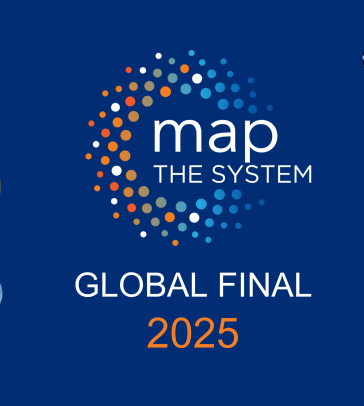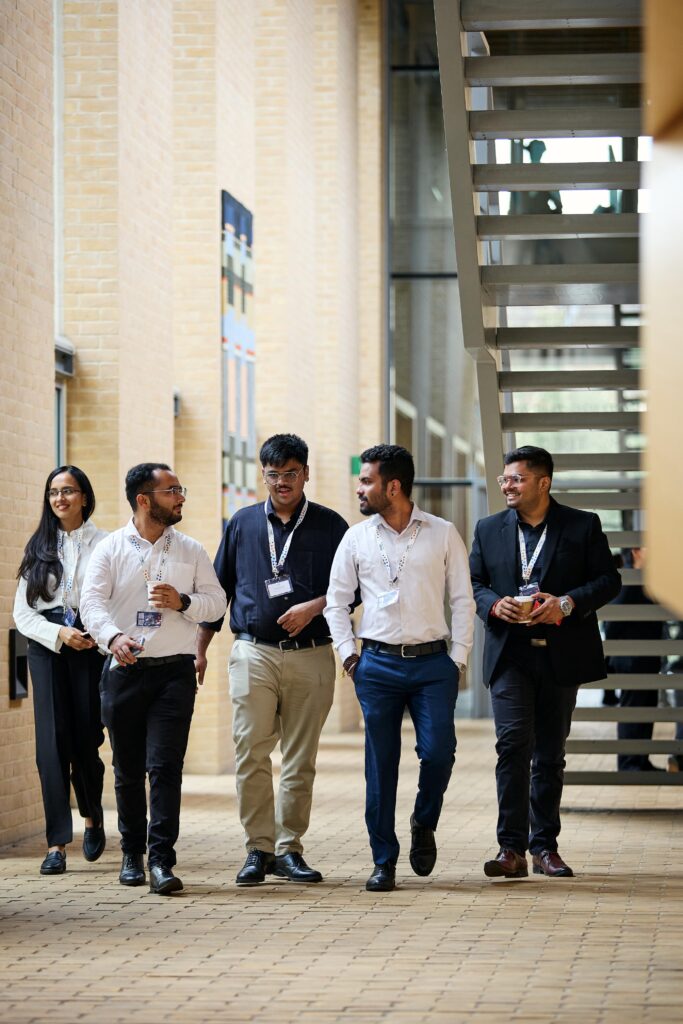Posted by
-
Workshop
-
Summer Research Internship Program (SRIP)
-
Summer Internship Program
-
SLRI
-
SEE Learning
-
QS Rankings
-
Pre-Placement Offer (PPO)
-
phd
-
pgdm bda
-
Opportunities
-
nova sbe
-
MDP
-
Marketing
-
IDA
-
Goa Institute of Management
-
GiveGoa
-
GIM Alumni
-
fpm non residential
-
Fpm
-
Executive fpm
-
Event
-
Dual Degree Programmes
-
Dual Country
-
Dr. Hanish Rajpal
-
Doctoral
-
CSSA
-
CPPG
-
Convocation
-
Conference
-
Co-LIFE
-
Campus Placement
-
Alumni Success Stories
-
Alumni Reunions
-
Alumni Relations
-
Alumni Office
-
Alumni Impact
-
Alumni Events
-
Alumni Engagement
-
Alumni
-
Admissions
-
achievement
-
#pgdm
-
#mba
Date
First Indian B-School to Compete at Oxford’s Map the System Global Final
At Goa Institute of Management, complex challenges are seen as requiring more than quick fixes — they demand deep inquiry, interdisciplinary collaboration, and an empathetic understanding of systems. Aligned with this philosophy, GIM made history as the first ever Indian business school to qualify for and participate in the Map the System Global Final, hosted by the Skoll Centre for Social Entrepreneurship at the University of Oxford.
What is Map the System?
Map the System, an initiative of the Skoll Centre for Social Entrepreneurship, is unlike conventional pitch contests that focus on quick solutions. Instead, it challenges students across the globe to resist the urge to jump to conclusions, urging them to thoroughly investigate complex problems through systems thinking.

Since its inception in 2016, the competition has engaged more than 15,000 students from over 140 universities, nurturing a mindset of informed, long-term, and community-rooted change-making. The global final is not just a competition — it's a celebration of research, collaboration, and transformative learning. Finalists participate in workshops with global practitioners, build international networks, and explore some of the most impactful systems-focused projects of their peers.
Held from 3rd to 6th July 2025 at the Saïd Business School, the Global Final brought together 134 student finalists from 50 institutions across 17 countries, selected from a pool of over 1,750 participants. Among them, the GIM team made history as the first Indian business school to reach this prestigious global stage at Oxford— a milestone moment that reflects GIM’s growing presence on the international academic stage.
The GIM Finalists
The GIM team’s project, “Mapping Access to Justice in India,” explored the deeply rooted crisis of legal access — a challenge often perceived through the lens of court delays and case backlogs, but far more complex beneath the surface. Using systems thinking tools like the Iceberg Model and causal loop diagrams, they uncovered structural issues such as lack of accountability, limited infrastructure, and outdated mental models that perpetuate systemic gridlock. Their research highlighted Online Dispute Resolution (ODR) as a promising lever for change, offering tech-enabled, accessible pathways to justice for civil and low-value cases. What made the issue personal was realizing these delays represent not just statistics but real lives in limbo.

Presenting their findings at the University of Oxford reinforced the global relevance of their topic, especially across the Global South, and emphasized the urgent need for empathy-led, systemic approaches to reforming justice systems worldwide.
Their achievement reflects their deep commitment to systems thinking and social insight — qualities championed by the Map the System competition, organized by the Skoll Centre for Social Entrepreneurship at Oxford.
Dr. Ajit Parulekar
Director of GIM
- Aryan Rajpal
- Aditi Naringe
- Subham Das
- Dhruv Bhagat
- Yash Kabra







